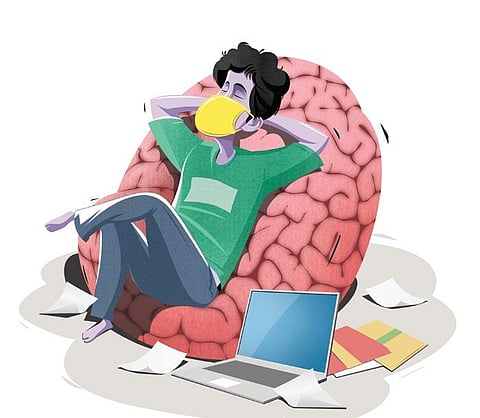

When the world was in the throes of the pandemic, frontline health workers were occupied with helping patients and combatting the trauma of daily deaths. However, along with a rise in COVID cases, we were also grappling with an underlying mental health crisis. In the midst of anxiety due to self-isolation and pandemic-related stress, mental health professionals doubled up as a crutch for many. In no time, they turned into first responders. But, have you ever wondered what this ‘new normal’ was like for those who made it their job to listen to your problems? Apart from dealing with issues like suffering a burn-out and managing personal anxiety levels, these professionals have also been at a higher risk of occupational stress.
Facing difficult times
When it comes to their personal well-being, many mental health professionals have the trouble of emotionally detaching themselves from their clients. It is only human for them to face burn-outs, particularly during a time like COVID. While working with clients, each approach is tailor-made. Whether it is for a patient who has lost a loved one or another who struggles with their identity, each case requires knowledge as well as resilience. Shaifila Ladhani, a psychotherapist from East Delhi, talks to us about a certain client who was rendered jobless, and at home with difficult parents for two and a half years. “In a therapeutic environment, it is difficult to get someone out of a situation. While I supported him, I wasn’t able to do any of the groundwork necessary,” says Ladhani.
Dinika Anand, a Paschim Vihar-based therapist, points out how COVID smashed the protective environment that professionals like her were surrounded by. With the virus not sparing anyone, her clients’ issues became relatable. She says, “I feared for my parents’ health as much as my clients did. It became challenging—the ambiguity and universality.”
A silver lining
However, not everything was dismal. Dr Vishal Chhabra, senior psychiatrist, Delhi’s Fortis Healthcare, who tries to maintain a positive outlook towards life, says, “I believe COVID has helped address the plight of mental health. By being cooped up inside their houses, many figured out how their brains were overworked and mental health became prominent.” In a similar vein, Srividya Rajaram, a clinical psychologist based in Faridabad, mentions how online sessions and tele-counselling became a boon to many. “The online mode has made it accessible for [people from] the smaller cities where there aren’t mental health services available,” she says.
A constant learning
The need to nurture one’s mental health is paramount, be it for patients as well as mental health professionals. Ladhani says that she is still training herself to reinforce the boundaries between her clients and her. Other professionals reiterate how the camaraderie of a support group, where they could open up about their feelings, was an advantage. Rajaram mentions her four-pronged approach—supervision, sabbaticals, being in therapy regularly, and being well-informed. Anand and Dr Chhabra conclude by talking about the importance of self-care during these tough times.